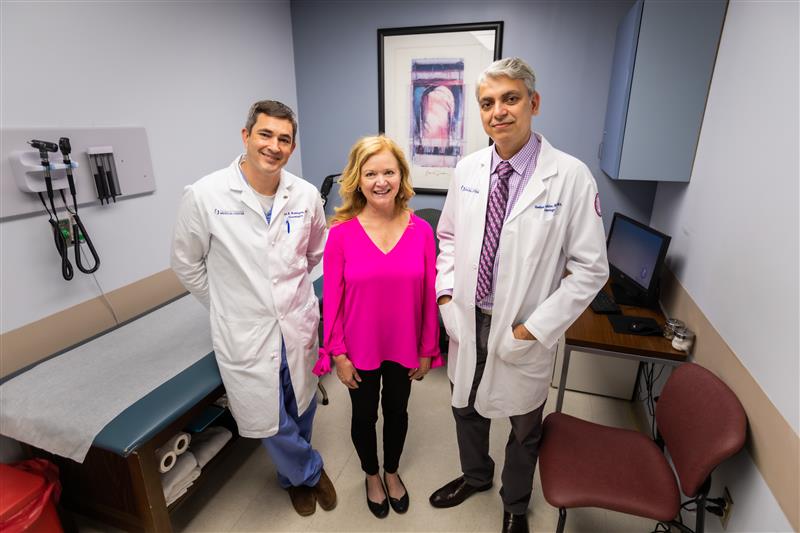
Judy Herrington – Acute Ischemic Stroke Survivor
Published on Monday, April 12, 2021
By: Rachel Browning Truong, rbrowning2@umc.edu
On July 5, 2019, Judy Herrington, a 60-year-old physical therapist from Madison, was scheduled to have her cardiac pacemaker’s battery replaced at the University of Mississippi Medical Center. “It was a routine outpatient procedure, so I didn’t feel the need to ask anyone to accompany me,” said Judy. “I thought I would be in and out that same day.” Little did Judy know she would be at the hospital for four days recovering from an acute ischemic stroke.
Judy’s battery replacement procedure was successful, but in the recovery area, a nurse noticed Judy’s face was drooping on the right side. “The nurse came in with a concerned look and asked me if I was ok,” said Judy. “All I remember was I couldn’t speak or move the right side of my body. As the director of a long-term rehab facility, I know the signs of a stroke but had no idea that I was actually having one. It was a very scary experience.”
The care team responded quickly to begin treatment. Stroke neurologist, Dr. Shashank Shekhar, administered the “clot-busting” drug tPA (tissue plasminogen activator), since the medical team caught her stroke-like symptoms right away. Judy also benefitted from an interventional procedure called a thrombectomy to remove the blood clot in her brain. Endovascular neurosurgeon and director of the UMMC Stroke Center, Dr. Chad Washington, was on call that holiday weekend and performed the thrombectomy. “Because Judy’s acute ischemic stroke was due to a large artery occlusion, mechanical thrombectomy was used to restore blood flow more quickly and effectively in order to save brain tissue and improve the odds of her being disability-free.”
Following the thrombectomy, Judy began to show signs of improvement as she regained movement on her right side. However, her recovery did not happen overnight. She continued to have trouble speaking. After four days in the hospital, Judy was able to return home without the need for physical therapy. She continued outpatient speech therapy for several weeks. “My work life is pretty hectic managing numerous employees, so I was very concerned about my ability to clearly communicate and perform my job well,” she said.
After a few months of therapy, her speech greatly improved, she returned to work with fewer hours, and is doing everything as before. She says her mood is much better and she feels more relaxed. She spends her weekends with friends and family. “I am so grateful to the UMMC stroke care team, especially Dr. Washington and Dr. Shekhar. I am standing here today because of their expertise and rapid treatment. They literally saved my life.”


